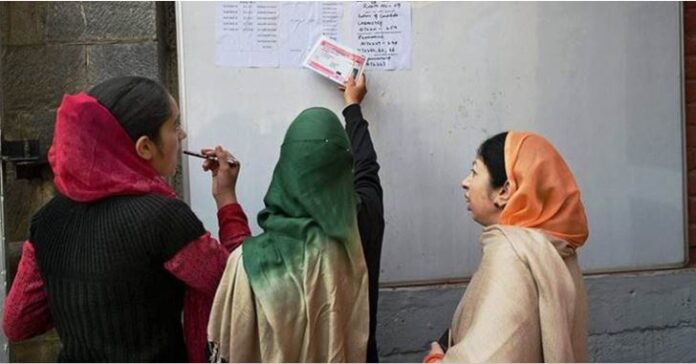The Jammu and Kashmir administration has added a clause to the J&K Grant of Domicile Certificate (Procedure) Rules, 2020, allowing the spouse of a native woman married outside the Union Territory to apply for a domicile certificate.
As per the new clause, the concerned tehsildar has been authorized to issue domicile certificate to the spouse of a woman upon showing the domicile certificate of his wife as well as a valid proof of marriage. The Deputy Commissioner is the appellate authority in case of any grievance.
The order has also modified the application of domicile condition to all levels of jobs in the Jammu and Kashmir government, as the newly added clause has been brought under the Jammu and Kashmir Civil Services (Decentralisation and Recruitment) Act as well.
A notification issued by General Administration Department on orders of Lt Governor Manoj Sinha read that “in exercise of the powers conferred by the proviso to Article 309 of the Constitution of India, read with section 15 of the Jammu and Kashmir Civil Services (Decentralization and Recruitment) Act 2010, the government hereby directs that”, the new clause shall be added “in the table appended to sub rule (1) of rule 5 of the Jammu and Kashmir Grant of Domicile (Procedure) Rules, 2020, after S.No./Clause 6”.
Even after the August 5, 2019 abrogation of Article 370 of the Constitution, the spouse of a native woman married outside Jammu and Kashmir was not issued a domicile certificate as the gazette notification issued by the Central government on August 4, 2020 provided for the issuance of a domicile certificate only to those who have resided in the Union Territory for 15 years, or have studied for seven years and appeared in Class 10 or 12 exam in the UT. He was entitled to a domicile certificate only subject to the fulfilment of above conditions.
The new clause into the Grant of Domicile (Procedure) Rules has removed these conditions.
The move was hailed by the BJP, with the party’s UT president Ravinder Raina calling the decision “historic”. Raina said Prime Minister Narendra Modi has given “justice to the daughters of the soil whose rights in J&K ceased to exist on grounds of Article 370 and Article 35A once they were married elsewhere in the country”. He also expressed gratitude to Home Minister Amit Shah and Lt Gov Sinha.
However, the decision is likely to face opposition from various quarters.
Ankur Sharma, chairman of the IkkJutt Jammu party, opposed the domicile provision as a whole, claiming that it will help J&K maintain its Muslim majority character. “Whatever good you do now in the name of removing gender inequality, the ultimate harm you people have done is by resurrecting Article 35A through the backdoor,” he said.
Sharma claimed the domicile provision would discourage private investment by outsiders, pointing out that the government sector contributes only 5-6 per cent of the total employment. He said that one cannot give the argument of jobs after plugging all routes for private sector investment, which generate 95 per cent employment.
Last year, the administration had, except for gazetted posts, reserved all level-4 jobs for domiciles of the UT. However, following widespread protests from all sections of society and mainstream political parties — including the BJP — the administration amended the order reserving all jobs for domiciles.
Readers like you, make ESHADOOT work possible. We need your support to deliver quality and positive news about India and Indian diaspora - and to keep it open for everyone. Your support is essential to continue our efforts. Every contribution, however big or small, is so valuable for our future.












